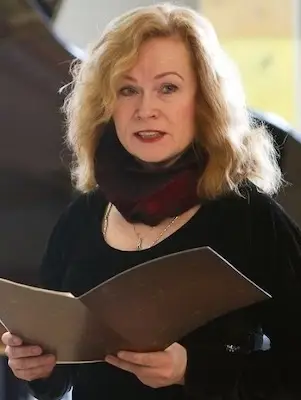Program Notes: A Ship With Unfurled Sails
A ship with unfurled sails
by Doris Kareva
A ship with unfurled sails
my shore’s approaching.
I sense, I feel it—
stand there, my back perspiring.
A ship with holy sails
sailing under no flag at all—
O, I have waited for it
like a child on the plain of death.
Dusk falls, it grows dark.
Night, in fact.
Will he come—or won’t it, presently?
Imperceptibly all is changed.
All arrives
so secretly.
Translated by Eric Dickens (b1953)
About the Composer
One of Britain’s foremost composers, after three years as a chorister at Canterbury Cathedral, Gabriel Jackson went on to study composition with Richard Blackford and John Lambert at the Royal College of Music. Particularly acclaimed for his choral works, his liturgical pieces are in the repertoires of most of Britain’s cathedral and collegiate choirs and he is a frequent collaborator with the leading professional groups of the world.
The native singing cultures and literary traditions of Estonia and Latvia have entered Gabriel Jackson’s sphere of creative influences over the course of his regular visits to the Baltic region and collaboration with choirs there.
About the piece
A ship with unfurled sails leads the ear directly to the words of Doris Kareva, one of Estonia’s leading poets, conveyed here in the English of Eric Dickens and underpinned for much of the piece by a lilting riff for divided altos. The work was created in the summer of 2009 for Joy Hill’s Vigala Singers, the Royal Junior College of Music alumni chamber choir. Kareva’s imagery elicits yearning melodies from Jackson and, of equal expressive significance, periodic silences timed to fall between the poet’s lines. Her text predates Estonia’s independence from Soviet rule, its long-awaited ship ‘under no flag’ clearly intended as a metaphor for freedom. A hypnotic vocalise of quaver triplets, voiced by divided sopranos and altos, stands halo-like above the composer’s wistful setting of ‘Imperceptibly all is changed’ for unison tenors and basses. The passage’s sense of expectation is resolved with a sublime final modulation from minor to major mode and the consequent reassurance that ‘all arrives so secretly’.
(Source: Notes on “A ship with unfurled sails & other works” by Andrew Stewart, Hyperion Records)




